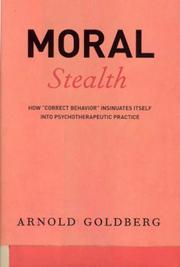| Listing 1 - 3 of 3 |
Sort by
|
Book
ISBN: 9789059730618 Year: 2007 Publisher: Rotterdam Episode
Abstract | Keywords | Export | Availability | Bookmark
 Loading...
Loading...Choose an application
- Reference Manager
- EndNote
- RefWorks (Direct export to RefWorks)

ISBN: 0226056880 1281959138 9786611959135 9780226056883 9780226056890 9780226056906 0226056899 0226056902 9781281959133 6611959130 Year: 2007 Publisher: Chicago : University of Chicago Press,
Abstract | Keywords | Export | Availability | Bookmark
 Loading...
Loading...Choose an application
- Reference Manager
- EndNote
- RefWorks (Direct export to RefWorks)
Recent critical theory is curiously preoccupied with the metaphors and ideas of early Christianity, especially the religion of Paul. The haunting of secular thought by the very religion it seeks to overcome may seem surprising at first, but Ward Blanton argues that this recent return by theorists to the resources of early Christianity has precedent in modern and ostensibly secularizing philosophy, from Kant to Heidegger. Displacing Christian Origins traces the current critical engagement of Agamben, Derrida, and Žižek, among others, back into nineteenth- and early-twentieth-century philosophers of early Christianity. By comparing these crucial moments in the modern history of philosophy with exemplars of modern biblical scholarship-David Friedrich Strauss, Adolf Deissmann, and Albert Schweitzer-Blanton offers a new way for critical theory to construe the relationship between the modern past and the biblical traditions to which we seem to be drawn once again. An innovative contribution to the intellectual history of biblical exegesis, Displacing Christian Origins will promote informed and fruitful debate between religion and philosophy.
Philosophical theology. --- Continental philosophy. --- Philosophy, Continental --- Philosophy, Modern --- Theology, Philosophical --- Philosophy and religion --- Theology, Doctrinal --- Continental philosophy --- Philosophical theology --- new testament, bible, biblical studies, christianity, christians, religion, religious, philosophy, secularism, theology, theological, critical theory, st paul, immanuel kant, martin heidegger, giorgio agamben, jacques derrida, slavoj zizek, albert schweitzer, david friedrich strauss, adolf deissmann, exegesis, interdisciplinary, industrial media, jesus, metaphysics, displacements, debate.

ISBN: 1281956899 9786611956899 0226301362 9780226301365 9781281956897 0226301206 9780226301204 6611956891 Year: 2007 Publisher: Chicago : University of Chicago Press,
Abstract | Keywords | Export | Availability | Bookmark
 Loading...
Loading...Choose an application
- Reference Manager
- EndNote
- RefWorks (Direct export to RefWorks)
A psychiatrist writes a letter to a journal explaining his decision to marry a former patient. Another psychiatrist confides that most of his friends are ex-patients. Both practitioners felt they had to defend their behavior, but psychoanalyst Arnold Goldberg couldn't pinpoint the reason why. What was wrong about the analysts' actions? In Moral Stealth, Goldberg explores and explains that problem of "correct behavior." He demonstrates that the inflated and official expectations that are part of an analyst's training-that therapists be universally curious, hopeful, kind, and purposeful, for example-are often of less help than simple empathy amid the ambiguous morality of actual patient interactions. Being a good therapist and being a good person, he argues, are not necessarily the same. Drawing on case studies from his own practice and from the experiences of others, as well as on philosophers such as John Dewey, Slavoj Žižek, and Jürgen Habermas, Goldberg breaks new ground and leads the way for therapists to understand the relationship between private morality and clinical practice.
Psychotherapists --- Psychotherapist and patient --- Interpersonal relations. --- Human relations --- Interpersonal relationships --- Personal relations --- Relations, Interpersonal --- Relationships, Interpersonal --- Social behavior --- Social psychology --- Object relations (Psychoanalysis) --- Patient and psychotherapist --- Psychoanalyst and patient --- Patients --- Psychotherapy ethics --- Professional ethics. --- Moral and ethical aspects. --- psychology, psychotherapy, therapy, counseling, correct, normal, normative, social norms, deviance, empathy, morality, ethics, clinical practice, habermas, slavoj zizek, john dewey, nonfiction, mental health, healthcare, patient interactions, ambiguity, confidentiality, thoughtlessness, ownership, resolution, countertransference, transference, superego, deontology, neutrality.
| Listing 1 - 3 of 3 |
Sort by
|

 Search
Search Feedback
Feedback About UniCat
About UniCat  Help
Help News
News